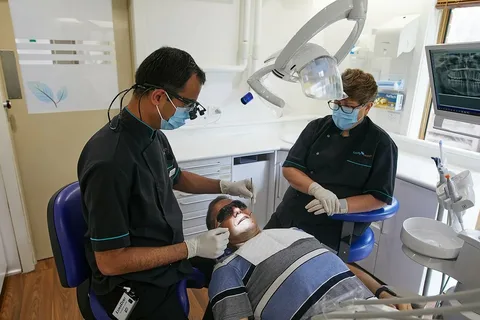The world of mobile communication has evolved significantly over the last decade, moving far beyond the era of simple SMS. Today, patients, businesses, and professionals are all looking for faster, richer, and more secure ways to connect. This growing need has led to the rise of Rich Communication Services, or RCS. But for many, the question still lingers: what does rcs message mean, and why is it important in both personal and professional communication?
This article takes a closer look at the meaning of RCS, how it differs from traditional SMS, and why industries like healthcare are paying attention to its potential.
What Is RCS Messaging?
Rich Communication Services (RCS) is the next-generation standard for text messaging. Unlike SMS, which is limited to 160 characters and plain text, RCS allows for more advanced messaging features that feel similar to popular chat apps like WhatsApp, iMessage, or Facebook Messenger.
With RCS, users can exchange:
- High-resolution images and videos
- Audio messages
- Read receipts and typing indicators
- Group chats
- Buttons for quick replies or actions
Essentially, RCS brings the rich, interactive features of internet-based chat apps into the standard messaging ecosystem—without requiring third-party downloads.
How RCS Differs from SMS and MMS
Traditional SMS and MMS have been the backbone of mobile communication for decades. But their limitations are clear: SMS lacks multimedia support, while MMS often compresses images and videos, reducing quality.
RCS, on the other hand, delivers a more interactive experience. For example, a healthcare provider using SMS could only send a simple reminder text. With RCS, that same provider could send an appointment reminder with options like “Confirm,” “Reschedule,” or “Add to Calendar”—all from within the native messaging app.
This interactivity transforms text messaging into a more engaging communication channel, bridging the gap between simple SMS and fully-fledged mobile apps.
Why RCS Is Gaining Traction
Several factors are driving the adoption of RCS:
- Better User Experience – Conversations feel natural and interactive, with features users already expect from modern apps.
- Brand Engagement – Businesses can personalize communication with images, logos, and branded messaging templates.
- Security Enhancements – Verified sender IDs and encryption options provide safer communication than traditional SMS.
- Cross-Platform Standardization – As carriers and device manufacturers adopt RCS, it becomes a universal alternative to fragmented messaging apps.
Applications of RCS in Healthcare
One of the most exciting applications of RCS is in healthcare. Patient communication is often plagued by missed messages, poor engagement, and outdated tools. RCS addresses these challenges by offering:
- Interactive Appointment Reminders – Patients can confirm or reschedule directly through the message.
- Pre-Visit Instructions – Clinics can send preparation steps with visuals or links.
- Follow-Up Engagement – RCS makes it easy to send surveys or care instructions after appointments.
- Improved Accessibility – Patients don’t need to download separate apps; they receive messages directly in their phone’s messaging system.
By reducing friction, healthcare providers can improve patient compliance, reduce no-show rates, and enhance overall satisfaction.
The Global Impact of RCS Messaging
Outside healthcare, RCS is finding applications in retail, banking, travel, and customer support. Airlines, for example, are using RCS to send boarding passes with QR codes that update in real-time. Banks can provide fraud alerts with quick “Approve” or “Report” buttons. Retailers can send promotions with product carousels and one-click checkout.
This versatility shows how RCS could soon become a universal standard for digital communication.
Challenges to RCS Adoption
Despite its benefits, RCS adoption isn’t without challenges:
- Carrier Support – Not all mobile carriers fully support RCS yet.
- Device Compatibility – While Android has embraced RCS, Apple has not (at least as of now).
- Data Privacy – Strong safeguards are needed to ensure sensitive data, especially in healthcare, remains secure.
- Education – Both consumers and businesses need to understand what RCS is and how to use it effectively.
Until these challenges are addressed, RCS will coexist with SMS, MMS, and third-party messaging apps.
The Future of RCS
The future of RCS messaging looks promising. With Google championing the standard on Android and telecom operators pushing adoption globally, more businesses are beginning to experiment with RCS campaigns.
For industries like healthcare, where communication is often a matter of patient safety, RCS could become a game-changer. Its ability to make interactions more engaging, secure, and efficient aligns perfectly with the goals of modern care delivery.
Looking ahead, as adoption spreads and compatibility improves, RCS could replace SMS as the default method of mobile communication worldwide.
Conclusion
Understanding what does rcs message mean is more than just a technical question—it’s about recognizing a fundamental shift in how people and organizations communicate. For healthcare providers, RCS offers an opportunity to deliver clearer, more interactive, and more effective messages to patients. For businesses, it’s a chance to build stronger engagement and trust.
As the technology matures, industries that rely heavily on communication—like healthcare—stand to benefit the most. To dive deeper into RCS messaging and how it’s reshaping digital communication, visit this in-depth guide: What Does RCS Message Mean?.
Read More Gorod








